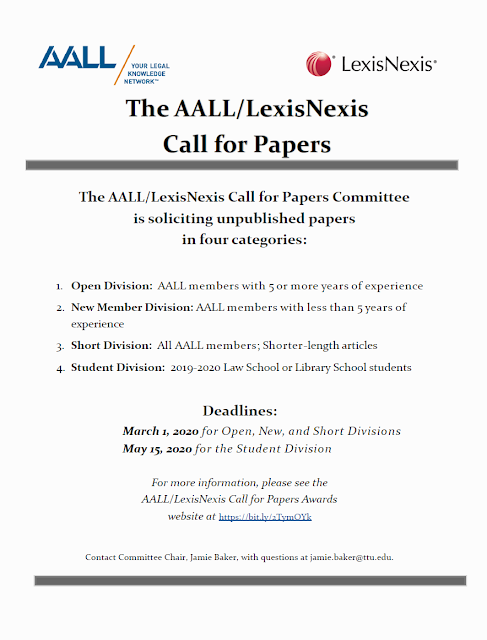Law Schools Still Need Law Libraries
There was a recent post on the new Law Dean's Blog discussing the role of the academic law library.
Dean I. Richard Gershon (formerly of Charleston School of Law, currently of the University of Mississippi School of Law) noted that some law schools are resorting to laying off faculty and staff in an effort to control budgets. The gist of his post is that the focus should not be on the faculty and staff but rather the law library (this is part I of a multi-part series on evolving law schools).
According to Gershon, "the ABA Standards for Approval of Law Schools require that libraries have adequate space and resources," and the standards create a "collection plan [that adds] greatly to the annual expenses of many law school budgets, without truly enhancing the education of the students, or the scholarly productivity of the faculty. In plain terms, [according to Gershon] we buy or subscribe to a whole bunch of stuff that we will never use." Gershon goes on to further state, "when we purchase print materials, we have to find a place to shelve those materials. The result is that we have established beautiful book museums, when our students and faculty rarely use those materials, and the legal profession moved away from print a decade ago."
There are many reasons beyond the ABA standards that law libraries collect the way that they do. There are ownership considerations whereby many electronic resources only allow licensing rather than content ownership, which means that the content availability is tenuous. Also, the legal publishing field has not kept pace with the supposed abandonment of print resources. As stated previously, of the 2 million unique volumes in law libraries, only 15% of those materials have been digitized for electronic use. This leaves 85% only available in print. That is a lot of valuable content to abandon.
There are also different considerations for standalone law schools. Without the support of a large undergraduate research library, standalone law schools are left to acquire the materials for their curriculum all alone. As one law librarian commented, "libraries’ collection development policies are based primarily on curricular emphases and support for faculty members' current research needs."
I visited the Charleston School of Law library once, and I was amazed by its small size. There was a very small core collection with a large emphasis on the legal databases. Maybe the students at Charleston would use the materials if they had access to them. I even had a student-friend from CSL who would call me for access to other resources to write a scholarly article. And if you follow in Charleston's footsteps, you're leaving it up to the legal databases to decide what content will be available and when.
As lawyers, we are taught to be a prudent bunch. To merely decide that we should not collect print resources because no one uses them is not the answer. Instead, we need to find a way to inspire students and faculty to use the resources. Law librarians need to instruct and promote our resources and the overall value of the library.


Comments
Post a Comment